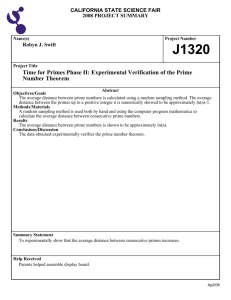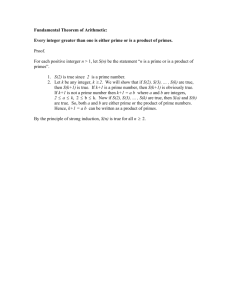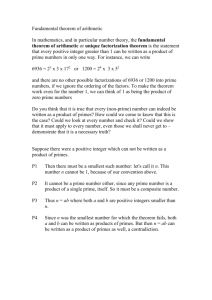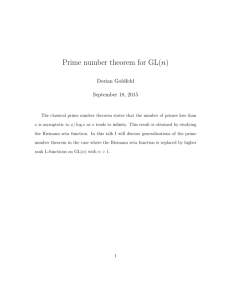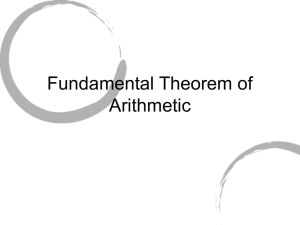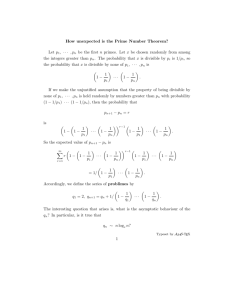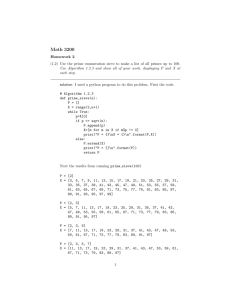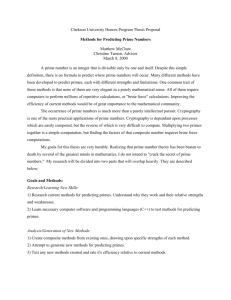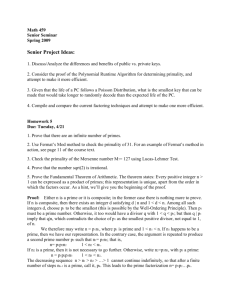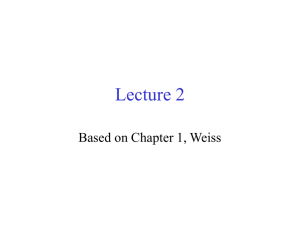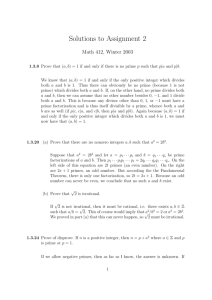solution
advertisement
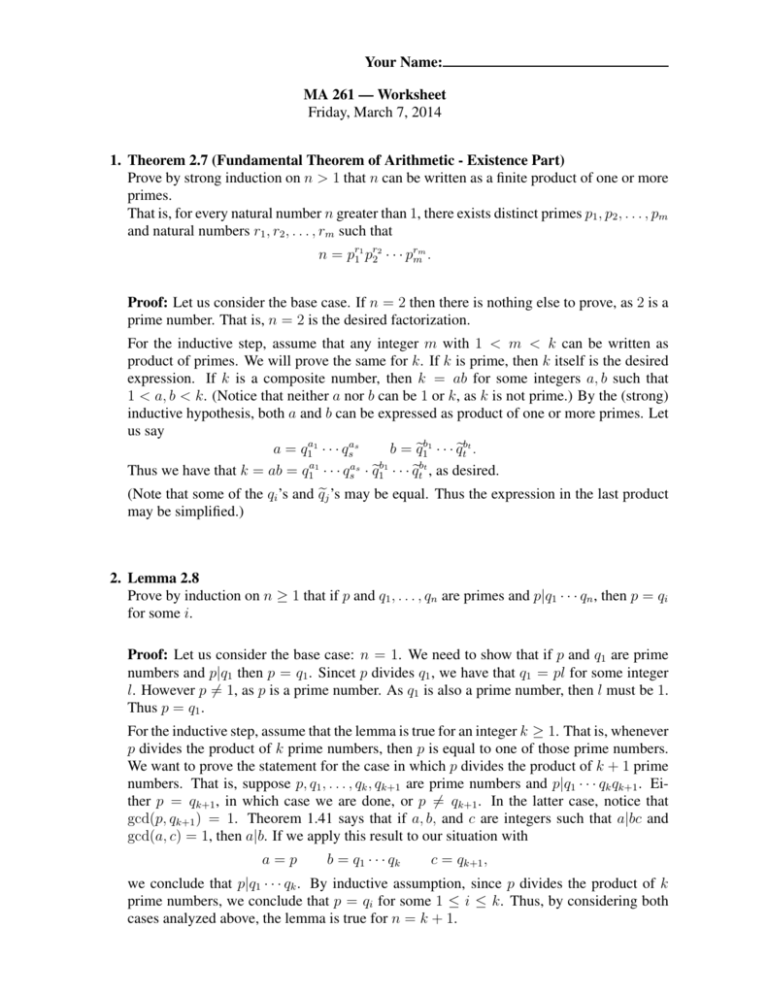
Your Name: MA 261 — Worksheet Friday, March 7, 2014 1. Theorem 2.7 (Fundamental Theorem of Arithmetic - Existence Part) Prove by strong induction on n > 1 that n can be written as a finite product of one or more primes. That is, for every natural number n greater than 1, there exists distinct primes p1 , p2 , . . . , pm and natural numbers r1 , r2 , . . . , rm such that n = pr11 pr22 · · · prmm . Proof: Let us consider the base case. If n = 2 then there is nothing else to prove, as 2 is a prime number. That is, n = 2 is the desired factorization. For the inductive step, assume that any integer m with 1 < m < k can be written as product of primes. We will prove the same for k. If k is prime, then k itself is the desired expression. If k is a composite number, then k = ab for some integers a, b such that 1 < a, b < k. (Notice that neither a nor b can be 1 or k, as k is not prime.) By the (strong) inductive hypothesis, both a and b can be expressed as product of one or more primes. Let us say a = q1a1 · · · qsas b = qe1b1 · · · qetbt . Thus we have that k = ab = q1a1 · · · qsas · qe1b1 · · · qetbt , as desired. (Note that some of the qi ’s and qej ’s may be equal. Thus the expression in the last product may be simplified.) 2. Lemma 2.8 Prove by induction on n ≥ 1 that if p and q1 , . . . , qn are primes and p|q1 · · · qn , then p = qi for some i. Proof: Let us consider the base case: n = 1. We need to show that if p and q1 are prime numbers and p|q1 then p = q1 . Sincet p divides q1 , we have that q1 = pl for some integer l. However p ̸= 1, as p is a prime number. As q1 is also a prime number, then l must be 1. Thus p = q1 . For the inductive step, assume that the lemma is true for an integer k ≥ 1. That is, whenever p divides the product of k prime numbers, then p is equal to one of those prime numbers. We want to prove the statement for the case in which p divides the product of k + 1 prime numbers. That is, suppose p, q1 , . . . , qk , qk+1 are prime numbers and p|q1 · · · qk qk+1 . Either p = qk+1 , in which case we are done, or p ̸= qk+1 . In the latter case, notice that gcd(p, qk+1 ) = 1. Theorem 1.41 says that if a, b, and c are integers such that a|bc and gcd(a, c) = 1, then a|b. If we apply this result to our situation with a=p b = q1 · · · qk c = qk+1 , we conclude that p|q1 · · · qk . By inductive assumption, since p divides the product of k prime numbers, we conclude that p = qi for some 1 ≤ i ≤ k. Thus, by considering both cases analyzed above, the lemma is true for n = k + 1.

